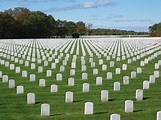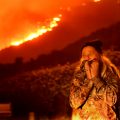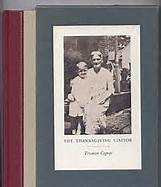
The Last of the Best
Watch a video of this blob by going to my You Tube Channel.
The text came when we were in St. Croix. My 97-year-old aunt, my father’s sister, had been admitted to Lawrence and Memorial Hospital in New London, Connecticut. She was in pretty bad shape, my cousin, her daughter, texted my sister and I. Some kind of infection. Both my sister and I said we would come as soon as we could. My cousin said she didn’t know what was going to happen.
Of course, my cousin did know what was going to happen. We all knew what was going to happen. My aunt was a relic. She had outlived her husband by more than three decades, her brother by a little over one. All her friends were gone, all the people she had known. She had lived from one century into another and through seventeen presidencies into her eighteenth. She still lived alone (with a lot of support from her daughters and grandchildren), but you can’t beat the odds forever even if you still complete several crosswords a day and down a glass of good scotch.
The pandemic had taken its toll on my aunt as it had taken its toll on everyone. My aunt had isolated in her apartment with her daughter and granddaughter bringing her food and other necessities. She had a number of underlying conditions and to protect her health they never stayed for long and were often afraid to come inside. Despite daily telephone calls from her daughters and frequent calls from her grandchildren, boredom was my aunt’s main lock down dilemma. My cousin texted my sister and I to ask if we could call my aunt more often to break up the monotony. It will remain my eternal shame that my cousin had to send that text.
Post-text my sister and I did do a better job. We sent cards and care packages. We called. Despite a bit of repetition on the view from her living room window, my aunt was still pretty sharp. Like many elderly people, her memory for the past was better than for the present. She talked about her parents who had both experienced the pandemic of 1918. She talked about swiping her brother’s pants as a kid so she could ride his bike while he slept in the early mornings. She talked about working in New York City in the 1940’s. Like many women of her generation, my aunt took the secretarial track in high school and then went straight to work. (Her brother, my father, went to Pratt Institute.) She told me about one of the offices she worked in that was across the street from Radio City where in the summers she used to watch the Rockettes sunbathing and practicing their routines on the roof.
In pre-pandemic days, when I was still able to drive to Waterford to take my aunt out, she used to write examples of shorthand on napkins over lunch at Red Lobster. These markings looked like the ancient languages people find etched into tablets unearthed from beneath the sands. My aunt had apparently also typed at an incredible speed, a wpm rate that when she applied for jobs, nobody believed until they saw her do it. The last job she had, the one she retired from after twenty plus years, was running a lawyer’s office in Mineola and later in Jericho. According to my father and my cousins, when people called up, my aunt was often able to tell them what they needed to do without consulting any of the lawyers. In another generation, it would have been my aunt who was the lawyer. God help anyone who would have had to go up against her in a court of law.
My aunt was born in Hollis, Queens on February 12, 1924. She grew up during the Depression when there were days her family didn’t know where their next meal was coming from and she walked to school instead of taking the public bus to save a few pennies. By the 1960’s, when I first knew her, she had married and moved farther out on Long Island to Williston Park in Nassau County. She lived with my uncle and my cousins, her two daughters, in what was then called a bungalow, a small brick house with a tiny backyard that sold in 2000 for more than what my husband’s and my house with 2.6 acres in Connecticut was worth. It is this bungalow I most associate with my aunt because it was to this house that we went on every holiday of my childhood: Thanksgiving, Christmas, Easter, Mother’s Day, Fourth of July, birthdays and the family summer reunion. It was in this house that I knew there would be an obscenely large pile of carefully wrapped presents under the tree for me at Christmas and a groaning table of food on every occasion. It was in this house that the piano would be played and Christmas carols sung (my aunt was also an accomplished piano player and singer). It was in this house that I cannot ever remember my father and my aunt arguing with one another about anything, only laughing, sharing a scotch and enjoying their time together.
She left this bungalow to move to Connecticut to live closer to her younger daughter. When she cleared her house on Long Island, she gave me her old roasting pan, a white enamel triple-boiler that had belonged to my great- grandmother and a warming plate all of which I still use. She lived in Waterford, Connecticut for more than 20 years and up until only a few years before she passed, she was driving. She had Bingo buddies from the local community center, frequented an Italian restaurant down by the marina and loved attending the Coast Guard Academy holiday concerts, singing and finger-conducting to the music. But the last years were harder, especially after she gave up her car. It was the old story. She was “safer,” but less independent and more isolated. She read a lot, did her puzzles. She crocheted ferociously until her arthritis made it impossible.
Back in January, she fell on the sidewalk on her daily constitutional to the mailbox. I have no doubt she’d been told multiple times not to leave the house on her own. Luckily some gentlemen heard her shouting and came to her rescue. You would expect a fall like that at my aunt’s age to result in a broken hip, but it was her wrist that fractured. She had a cast and a stabilizer, not as much immobility as if she had broken her hip, but enough immobility to make things difficult. It hurt a lot, she told me whenever I called. It wasn’t getting better as fast as she wanted it to.
Her daughter and granddaughter and home health aides came regularly, but the aides had their allotted hours and her family had their jobs. There was more repetition now in her conversation: the pain, the dearth of people outside her window (the only view she now had of the world). She didn’t appear to be much of a television watcher. She never talked about it anyway. It was impossible for her to hold a book to read.
It took about a month from the time she was admitted to hospital in late April until she passed on the 25th of May. Her brother, my father, had lasted about a month as well. Neither of them died of any one illness. My aunt’s hospitalization started as an infection and my father’s as a gastro-intestinal bug, but the reality was that both their bodies had grown too old and too fragile to stem the cascading failures of one system after another triggered by the original complaint. They survived for a while on a cocktail of medications and interventions, but eventually both of them had had enough.
My aunt was laid to rest at the beginning of June out in Calverton Cemetery on Long Island, the largest military cemetery in the country, larger even than Arlington. She went in next to her husband, my uncle, who, like my father, was a World War Two vet. You cannot call Calverton a cozy place. There are too many lines of white gravestones stretching endlessly through field after field for it to feel like the village churchyard, but the cemetery did feel quiet and respectful. The staff, most of whom were vets themselves, were particularly kind.
My aunt and my father and my mother and my uncle were members of what we now in America call the greatest generation. They were all Depression-era kids who grew up in scarcity and a decade later made the sacrifices required to win the Second World War. After the war was over, our parents benefitted from America’s wealth and power. My sister and I and my two cousins benefitted from their good fortune and hard work. We went to college, something my aunt and uncle never did and my mother and father never finished. We had professions, children, traveled.
If the greatest generation is popularly regarded in the United States as the generation that fought and won the Second World War, for me it has always been the generation whose lives exceeded their expectations. They lived in houses bigger than they had ever expected to, owned more things, ate better food, traveled to places they never expected to see and lived longer than they ever could have dreamed.
My uncle passed at the age of seventy-seven. He was thirteen years older than my aunt. Both my parents lived until they were eighty-eight, my father repeatedly muttering that he couldn’t believe how he got to the age he was. My aunt, however, remained for many years the queen of longevity, the sole survivor of her time and place. She was the last of the best, the last of the people who raised and loved my sister and I and my cousins, the last of the people who made the sacrifices necessary so we could follow our dreams.





Really lovely chronicle of your aunt’s life and of what she meant to you. And very thoughtful comments about the greatest generation — particularly that their lives exceeded their expectations . This was true of my parents’ generation too — they achieved prosperity in their lifetimes, having overcome hardship early and without starting out with university degrees. Now though young people’s education includes graduate degrees but they are struggling. They cannot easily afford to start a family nor to live in houses the size of their grandparents’ homes.
Thankyou for putting your affectionate tribute to your aunt in the perspective of Covid and the current economy.
I love the picture of your family holidays with the obscene piles of presents and a dad and aunt enjoying each other’s company over a glass of good whiskey!
A lovely remembrance and beautifully written.
What a lovely tribute to your aunt and your family. Beautifully written.
lovely. I’m sure your aunt would be pleased that you valued and appreciated her life so wonderfully. Another lost treasure…but that’s life. Love your writing
Your aunt sounds like an incredible person. I’m so glad that you had her in your life, Linda. Your piece was moving and lovely.
A heartfelt tribute to a beloved aunt and leader of the family tribe. We all should have an aunt like her.
I just had the chance to read this lovely tribute to your Aunt. It made me think of my parents who were also part of this generation and ‘whose lives exceeded their expectations’ – what a terrific phrase! Thanks again , Linda, for putting it all into words.